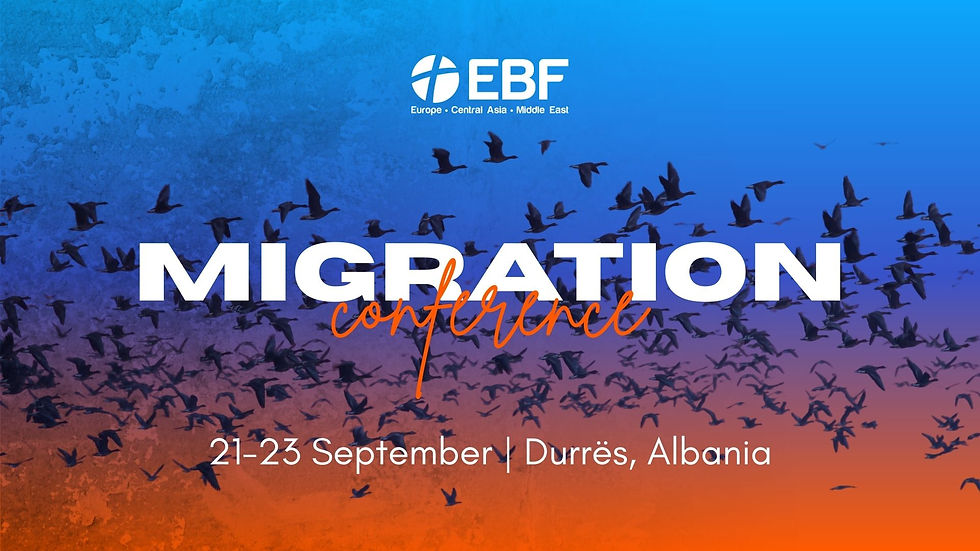EBF Consultation: How Can Our Churches Be a Blessing to Society?
- Nov 28, 2020
- 2 min read
Herbert Anders, Baptist Union of Italy - November 28, 2019
Imagine the president of your country coming to attend your Sunday worship service during his/her election campaign. It’s not an official or announced visit. S/he just steps in like any other of your church members, only that s/he’s followed by body guards and journalists. S/he takes a seat in the second row, you greet him/her warmly from the pulpit and your congregation, impressed by the visit, applauses his/her presence. During testimony-time s/he goes forth and tells how his/her politics are always being sustained by the faith in Jesus. The visit does not remain unobserved and several newspapers bring the story. A few weeks later, in the elections, his/her antagonist wins and in the following months it becomes clear to you that the new government associates your church with the former president and you might encounter disadvantages in your social projects.
Stories like these were shared during the consultation "Political tensions of today and the church: Exploring Baptist engagement in Europe" for which the EBF commission “Theology and Education” had invited delegates of the member unions to meet in Elstal/Berlin, November 20-22.
Five keynote speakers introduced discussions on following topics:
Baptist perspectives on the relationship between church and state in a plural society (Erich Geldbach, emeritus Prof. of Theology, Marburg),
Porous Borders and Textual Uncertainty: Why ancient Israel is no model for modern nationalism (Helen Paynter, Dr. of Theology, Bristol),
How can we seek the peace of the Netherlands? (Daniel Drost, Baptist Seminary, Amsterdam),
I’m proud to be maladjusted: preaching against the tides (Jan Martin Abrahamse, Baptist Seminary, Amsterdam),
Tensions and Approaches from an East-European Context (Sorin Badragan, Baptist Seminary, Bucharest).
A visit in the Baptist church of Berlin-Wedding and an introduction to the community work in the city area, together with a visit at one of the sites where the wall divided Europe in East and West (Bernauer Street) added a contextual impression on what it means to serve as a Baptist church in a political context.
All these clues for the discussion, further enriched by the reports of the local experiences of the 18 participants coming from Austria, Estonia, Germany, Israel, Italy, Moldova, the Netherlands, Poland, Romania, Scotland, United Kingdom and the Ukraine, raised questions like: Does the Baptist principal of church and state separation has to be expressed differently in countries where Baptists are a minority movement from countries where they are well established and institutionally recognized? How can our churches be a blessing to society when the state tries to marginalize them, like in non Christian countries? Can our churches continue to be prophetic also when they are in a power position?
The contribution of the consultation consisted less in providing answers, than in the expression of a common concern. Local practice served for inspiration and thought food for problems in other countries.
To plunge yourself in the topic, you can soon find the keynote papers on the EBF website.
A special mention of gratitude to the organizing committee consisting of Marion Carson, Mike Pears and Michael Rohde that with the cooperation of the EBF General Secretary Tony Peck and Assistant General Secretary Helle Liht facilitated the meeting.




Churches facing political attention must carefully balance hospitality, public witness, and social responsibility, ensuring their actions serve the wider community rather than party interests; this careful timing and awareness is similar to Geometry Dash Lite a rhythm platformer where players guide a geometric icon through levels, learning focus, patience, and precision through simple but demanding gameplay.